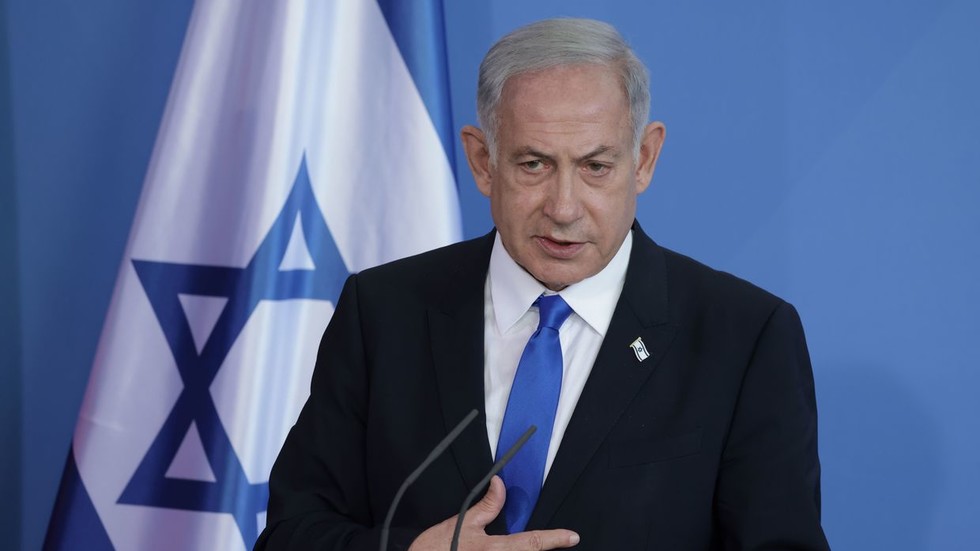In the latest developments regarding the escalating tensions between Israel and Iran, Israeli Prime Minister Benjamin Netanyahu has reportedly approved a list of military targets in response to a substantial missile attack from Iran. This attack, which occurred on October 1, involved nearly 200 ballistic missiles aimed at Israel and was retaliatory in nature, following the deaths of prominent figures from Hamas, Hezbollah, and a senior general in Iran’s Islamic Revolutionary Guard Corps (IRGC). Israeli officials have since expressed a strong intention to respond to the strike, with Defense Minister Yoav Gallant emphasizing the goal of delivering a “deadly, pinpoint accurate, and surprising” retaliation. While specific details of the approved targets remain undisclosed, calls have been made for severe strikes on Iranian energy capabilities, particularly nuclear facilities.
Despite this aggressive posture, Israeli leakage indicates that Prime Minister Netanyahu reportedly assured U.S. President Joe Biden that any Israeli response would be limited to Iranian military targets. In contrast, his government has come under pressure from various quarters—both internally and internationally—to consider broader implications when planning their retaliatory actions. Biden’s administration has urged restraint, advocating that Israel should avoid attacking Iranian oil or nuclear facilities to prevent the escalation of hostilities into a larger conflict that could destabilize the region further. The situation underscores the complex balance of power in the Middle East and the expectations that the United States places on Israeli military actions.
Conversely, Iran has responded with stern warnings, urging Israel to exercise caution and refrain from further escalation. Iranian Foreign Minister Abbas Araghchi recently reiterated Iran’s commitment to defending its interests and preventing foreign aggression, emphasizing readiness for a decisive and regretful response should Israel follow through with military action. This reflection of Iran’s heightened military rhetoric suggests a fraught atmosphere characterized by mutual distrust. As Iranian officials underscore their commitment to regional security, they have simultaneously criticized what they perceive as Israeli aggression, calling on the UN to intervene.
The tense rhetoric between the two nations reflects deeper, long-standing grievances rooted in geopolitical struggles in the Middle East. Israel accuses Iran of fostering militant groups that threaten its national security through proxies in the region, while Iran sees Israeli operations as aggressive incursions into its sphere of influence and a direct threat to its sovereignty. A substantial pillar of Iran’s defense strategy revolves around bolstering its military capabilities and asserting its influence through alliances with groups like Hezbollah and Gaza-based factions. Hence, any Israeli attack raises concerns about regional stability and potential retaliation that could engulf nearby countries.
While specific strategies for retaliation remain unclear, the situation is fluid, with both sides seemingly preparing for potential escalating military engagements. Analysts suggest that any conflict could extend beyond a bilateral confrontation and draw in regional and global powers due to the complex interdependencies characteristic of Middle Eastern geopolitics. The balance between Israeli retaliatory operations and Iranian defense postures will be instrumental in forthcoming engagements, raising the stakes for an already volatile region.
In this intricate web of international relations, the role of the United States remains pivotal. As a crucial ally of Israel, U.S. actions and recommendations significantly influence Israeli military strategies and diplomatic maneuvers. The Biden administration’s calls for measured responses and diplomatic channels reflect an understanding of potential wider ramifications if hostilities were to escalate unchecked. The ongoing situation highlights the precarious nature of peace and security in the region, suggesting a prolonged period of tension that could impact various factions and states engaged in the broader Middle Eastern conflict dynamics. The ongoing narrative between Israel and Iran thus encapsulates the larger struggle for power, influence, and stability in a region marked by centuries of conflict and historical enmity.

